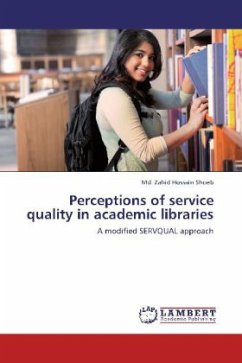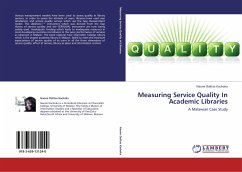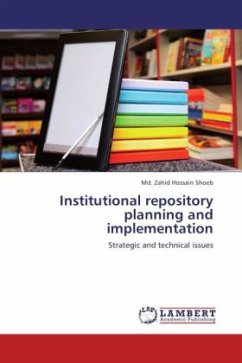Users' perception of service quality has become an area of considerable interest for library and information services like other service organizations. Though traditionally library quality has been assessed by its collections, sizes, counts of users etc., but it has long been argued that library users must be involved in the evaluation process in order to obtain valid and acceptable results. By evaluating service quality, libraries can identify areas for improvement that are fundamental to their service mission, goals, and objectives. SERVQUAL has now evolved as an effective instrument to assess library service quality worldwide. A study was conducted among top ranked academic libraries in Bangladesh using a modified version of SERVQUAL. Along with the relevant gap differences, users' minimum, expected, and perceived services were calculated. The concept of Zone of Tolerance (ZOT) was applied to see which items of service quality equal, exceed or fall short of their expectation. Finally, the dimensions of service quality were determined through exploratory factor analysis. This book is suitable for anyone concerned with Total Quality Management and Service Research in library.
Bitte wählen Sie Ihr Anliegen aus.
Rechnungen
Retourenschein anfordern
Bestellstatus
Storno








